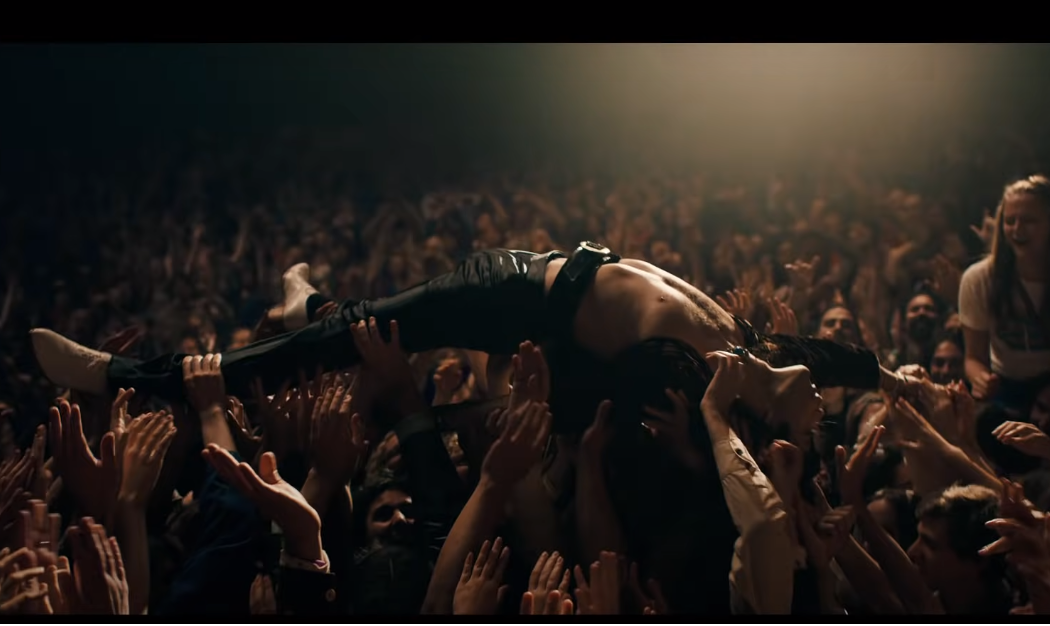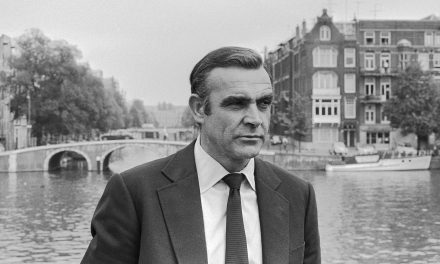(Photo Credits: Screengrab from 20th Century Studios’ Official YouTube Account)
In recent years, the entertainment industry has made strides toward greater LGBTQ+ representation. However, despite this progress, Hollywood continues to grapple with the issue of “straightwashing,” a term that refers to the practice of altering or omitting LGBTQ+ characters or themes to make them appear heterosexual or to appeal to a broader, often more conservative, audience.
Straightwashing occurs when LGBTQ+ characters from source material—whether they come from books, real-life stories, or historical events—are either erased, rewritten as straight, or have their queerness minimized in film and television adaptations. This practice isn’t just about changing a character’s sexual orientation or gender identity; it also involves downplaying or erasing the character’s queer relationships, experiences, and culture.
A notable example of straightwashing is the 2015 film Stonewall, which was criticized for centering a fictional white, cisgender gay man in the story of the Stonewall riots, a pivotal event in LGBTQ+ history, while sidelining the contributions of Marsha P Johnson and Sylvia Rivera who were transgender women of color, drag queens, and other marginalized groups who were actually at the forefront of the movement. Similarly, the biopics Bohemian Rhapsody and The Imitation Game faced backlash for downplaying the queer identities of Freddie Mercury and Alan Turing, respectively.
There are several reasons why Hollywood persists in straightwashing LGBTQ+ characters. One major factor is the perceived economic risk. Studios often worry that overtly queer content might alienate mainstream audiences or underperform in conservative markets, particularly overseas. By straightwashing, studios hope to create content that appeals to a wider audience, including those who might be uncomfortable with LGBTQ+ themes.
Another reason is the ongoing struggle with authentic representation in Hollywood. Even as more LGBTQ+ stories are being told, there is still a lack of LGBTQ+ voices behind the scenes. Many decisions about casting, character development, and storytelling are made by straight, cisgender individuals who may not fully understand or prioritize the importance of authentic representation.
Straightwashing has significant implications for both the LGBTQ+ community and society at large. For LGBTQ+ individuals, seeing their identities erased or misrepresented in media can be deeply hurtful and alienating. It reinforces the harmful notion that queer identities are less valid or less worthy of representation than heterosexual ones.
Furthermore, straightwashing contributes to the broader erasure of LGBTQ+ history and culture. When queer stories are altered to fit a heterosexual narrative, it denies the audience a true understanding of the diverse experiences that make up the human condition.
In response to straightwashing, many LGBTQ+ activists, creators, and allies are demanding more authentic and inclusive representation in Hollywood. Social media campaigns, petitions, and public outcry have become powerful tools in holding studios accountable for their choices. Additionally, the rise of independent filmmakers and streaming platforms has created more opportunities for LGBTQ+ stories to be told without the pressure to conform to mainstream expectations.
As audiences become more vocal about their desire for genuine representation, it is imperative that Hollywood listens and moves away from the practice of straightwashing. Authenticity and diversity not only enrich storytelling but also contribute to a more inclusive and understanding world.
Ultimately, the fight against straightwashing is part of the broader struggle for LGBTQ+ rights and visibility. By challenging Hollywood to do better, we can help ensure that all voices and stories are heard and respected.










Straightwashing gets called out as unacceptable by certain members of “The Community”. Yet, the”Gaywashing” is justified.
Similar to the uproar when a Gay actor is not awarded a Gay role because it was awarded to an actor understood to be Straight. Or a Gay actor takes a Straight role.
As usual, different rules are fine.
I agree. There’s been A LOT of Gaywashing ever since the gay community first formed LGBTQIA+. Ever since the community as a whole became obsessed with “labels” (especially made up ones that were newly made during and after the pandemic) most people in the community felt it was necessary to enforce their beliefs on the heterosexual community. And to make matters worse, most of the younger generation of gay, lesbian, bi etc, I’ve noticed are more self entitled nowadays to the point where even other homosexuals began to distance themselves from even wanting to be considered the word “gay” and… Read more »
I wish it could going back to being just LGB…was way nicer then. That other made up stuff is madness
Yeah, I only care about gay anal sex. The rest is just back ground noise to me (not that there is anything wrong with background noise).
And many are indeed mad in every sense.
My main post was “not approved.” Don’t write a blog if you can’t stop controlling what is said.
why, what did your original comment say?
There are many who have a vested financial interest in making us as complicated as their greedy little heads can come up with. ( Can you say “gay bar owner”?!)
Me too. I don’t even consider myself apart of the what I like to call the alphabet people along with everything it stands for. I’ve learned it’s ok to be gay without being apart of a community full of delusions and warp-minded thinking.
LGB can’t coexist with T. Trans activists despise gay men and women. They want to convert children who will likely grow up to be gays and lesbians into heterosexuals through puberty blockers, hormones and surgeries. It’s the new conversion therapy.
When I meet a straight woman who is pretending to be a gay man, invading our community and fleshpot, who revels in the labels and assumes she knows everything about their meaning and significance, well, excuse me if I am totally offended, as a real man who has lived through all the community’s struggles. And here she comes along, takes hormones and thinks she can be one of us. No mangina, only womangina.
Not surprising, hypocrisy is everywhere, considering Cali., they’ve BEEN doing this for decades with bygone leadmen and women in Hollywood that were single and gay or bi; “marring for public image” – “pulling the wool over everyone’s eyes” as to their true sexual natures.
You can’t expect Hollywood to lose money just to avoid hurting your feelings. Instead, you should feel gratified that movies like “Stonewall” get made at all, in spite of the sacrifices to the source material. Sadly, though, once you start playing the victim role, nothing anyone does is good enough for you.
Hollywood will never be perfect .. then again no one is perfect, not even perfectionists, honey.
it is about money not homosexuality. movies are money and profitability depends on public attendance no viewers. no money movies have to appeal to a broad audience not a narrow one
The 2015 Stonewall film made $293,000 at the box office…
Wonder why?
That’s why we have all those oh-so-crappy “gay movies” catering to such a low standard.
There is a lot that goes into successful movies; cast, storyline, advertising, and the like. And timing makes a big difference – perhaps a shortfall of “Stonewall”. For example at “Bohemian Rhapsody” that grossed over $216M. Then there are gay-inclusive movies like “The Imitation Game” which grossed over $233M. In short, there are a lot of gay-inclusive movies and even TV programs than ever before. That suggests things are trending in a good direction.
there was an audience and there were profits to be made.
Hollywood still quite not ready for a total gay yet .. oh well it’s trying to, at the least, thanks to Will and Grace and Broke back Mountain, honey. They still trying, give em some time, they’ll get there
Those latecomers broke NO ground at all.
true, then again, gotta give props to Gyllenhaal and Ledger, damn they so hot! don’t think we’ll ever see them cowboys saddling up in da bed like they did in 2005, honey!
#BrokeBack4Ever
seriously guys, this is the best you can come up with?
At least it’s not about what’s hot or not.
really diggin yo’ name there bud, Torse means ya got a (possible) hot washboard tummy
The worst example of straight-washing was the film “Enigma” where Jude Law and Kate Winslet are a couple. “The Imitation Game” was great because it not only showed that Alan Turing was gay, but that he was prosecuted and chemically castrated for it. “J. Edgar” was another example of being accurate about a historical gay.
There is a huge difference between misrepresenting a gay historical or even literary figure and not “representing” enou go gays so that narcissistic snowflakes can feel “seen.” Painting everything with a gay brush is equally offensive to straight people and sets back gay rights.
I think the worst was Breakfast at Tiffanys. The male lead was Audrey Hepburn’s gay friend in the book, not her hetero lover like in the film. And the Mr Yunioshi character was pathetic.
I couldn’t agree more with your premise above. I’m actually tired of our gay community thinking the entire world is going to adjust to some people’s tender sensibilities. It’s not realistic. Rather, go out into the world and do not be a victim. Do not allow yourself to live with a victim mentality. Take your life into your own hands. Expect to be treated well, as you treat others the same. And for fuck sakes, don’t use “gay” as your calling card. Straights don’t do that, and it won’t gain you friends.
As an older late-comer to the community, perhaps the term, “straightwashing” is what troubles me. While the LGBTQ+ community has made good strides to be recognized and gain societal position, we need not be so strident that we risk losing what we gained! In society as a whole, LGBTQ+ is a minority, and in some countries it is still underground; moreover LGBTQ+ are certainly not in a power position. Striking while the iron is hot could just as well get us scalded. The example of the movie “Stonewall” is instructive – do you think this movie would have been made… Read more »
Obviously well written and obviously quite logical
Thanks! Would have written less if I had more time.
Everything lgbtqia2+ whatever is constantly shoved in everyone’s faces so I don’t get this. I’m glad when June finally ends and we don’t have to see constant rainbow flags and more obnoxious ‘progressive’ flags everywhere. Stop the pandering.
We’re of the same mind. I’m an older gay guy. I’ve been through many decades, witnessing social changes that actually amaze me now. I’m grateful. The younger gays of today, need to understand that they stand on the shoulders of many guys/gals who plowed the way through tough social circumstances and advances. I too am so tired of how many permutations of the rainbow flag. I make a wager that in 10 years we will no longer have Pride festivals. The integration of same sex individuals will be an openly accepted lifestyle with equal rights everywhere. There is still some… Read more »
The real hero of Stonewall was a woman described as a “stone butch lesbian” who fought with the police and finally yelled to the passive crowd, “WHY DON’T YOU GUYS DO SOMETHING”. And then they did something. Who she was, has been lost to herstory…
How stupid. Movies have to sell to the whole population, not our sliver of a community. They have to make everything palatable. Drag queens may have had a role in the original riots, but they did not create the Gay Civil Rights movement, not at all. Your expectations weren’t met, how awful. Grow up. You don’t know what you are talking about, at all.
If anything, our problem now is too much visibility, visibility of the utterly wrong kind! Drag Queens, if you can all them that, fetishists, fake gays, all are doing their best to cause us to lose all our hard-won rights!
What “straightwashing” ( a term I NEVER even fuckin’ heard of, until I read this essay! This is part of the “gayness” problem folks!. . . . some feel compelled to even create their own language, despite perfectly good English satisfactorily used by ALL for centuries!), accomplishes by making us look like we can sorta fit in a mainstream after all, the counterproductive ‘Pride’ movement puts asunder.
So just relax Adam until next June comes around to do it’s damage.
What a steaming shovelful of dung! The “Community” has never been more visible in history, to the point of drowning out common sense and simple reality. Screaming louder does not make you more deserving or establish a genuine case. It’s time for “the love that dare not speak its name” to learn how to shut the hell up!
It’s all marketing. When a movie is produced at $100+ million, investors and producers do not care about the social correctness of a storyline. They just want a return on their investment. A majority of movie goers are straight. Many gay actors over the decades have been gay (Tab Hunter, Rock Hudson, James Dean, etc.) they knowingly accepted straight roles for stardom and money. It’s all business. Sometimes straights are given roles in gay stories. It’s fair play. Again, it’s just business. Some young male actors today walk the straight/gay line in their lives. It’s a personal choice. Not a… Read more »
Watch the feature of Rock Hudson on HBO Max. It is super illuminating about the Straightwashing issue that has gone on for decades in Hollywood. It is also very touching about the activism that arose when he died of AIDS. So many straight celebrities, politicians and gay communities that finally said, “enough”! It started a movement for medical research that has now saved millions of gay people dying from AIDS, and those of us who are now on Prep are also beneficiaries.
Look most of us just want to have a partner, sex and do so in peace…who cares what Hollywood does.
So let me get this ‘straight’…they make a movie about one of the defining moments of modern Gay history—Stonewall—but to make it more palatable to John and Jane Q. Public, they invent a straight main character and virtually ignore the two drag queens who were the ones who had the balls to stand up to police harassment… and I’m supposed to be GRATEFUL they made the movie at ALL…??? The whole point of the gay rights movement is not to force our ‘agenda’ down people’s throats, but rather to be proud of who we are and stop groveling and begging… Read more »
from one gay dude to i am assuming another: stfu please. youre exhausting. this is exhausting. please just stop, you sound starved for attention or something. get a life .
Does it make you feel better about yourself to put someone else down? That’s sad. Frankly, I don’t care what you think about me, but it says a lot about you that you find intelligent discourse “exhausting” or equate voicing a considered opinion with not having a life…
The original “The Color Purple” and “Lawrence of Arabia” are the most egregious examples of Hollywood’s straightwashing. Alice Walker’s awesome novel was reduced to nothing by virtually ignoring the beautiful lesbian relationship that was central to the book. Similarly, Thomas Edward Lawrence’s extraordinary life was glossed over in that legendary movie.
I haven’t seen “Bohemian Rhapsody” yet, so I can’t comment on how “accurately” Freddy Mercury was portrayed in the film. He struggled with his sexuality and with being honest/public about it most of his life anyway, poor guy. “Stonewall” definitely glossed over the actual history of the events it claims to depict. Hopefully there’s a big ol’ disclaimer at the beginning of the movie about “Some characters invented or combined for dramatic purposes”, or just “This is intended to be entertainment, not a documentary.” “The Imitation Game” was definitely sparse with actual details and depictions of Turing’s life & sexuality.… Read more »